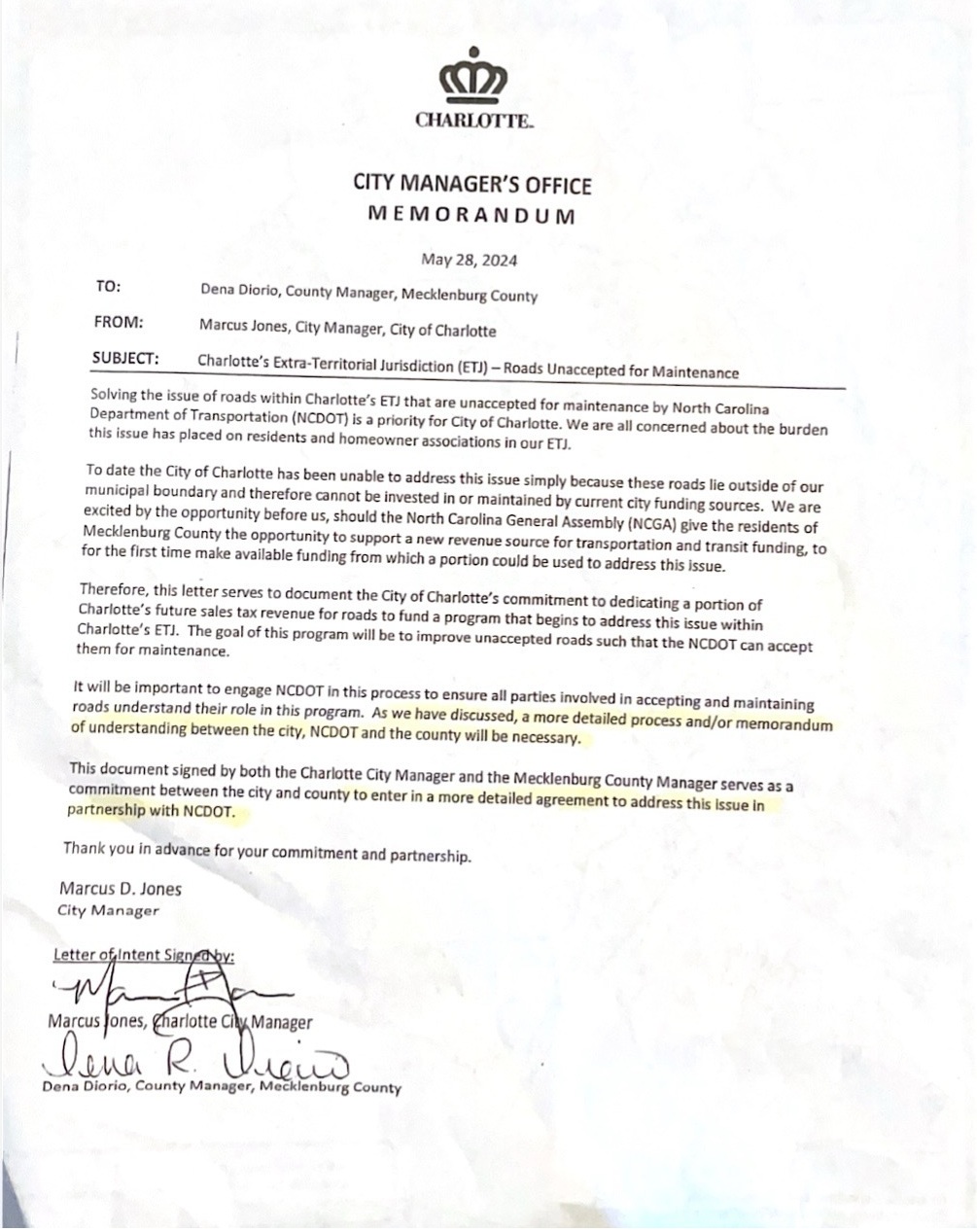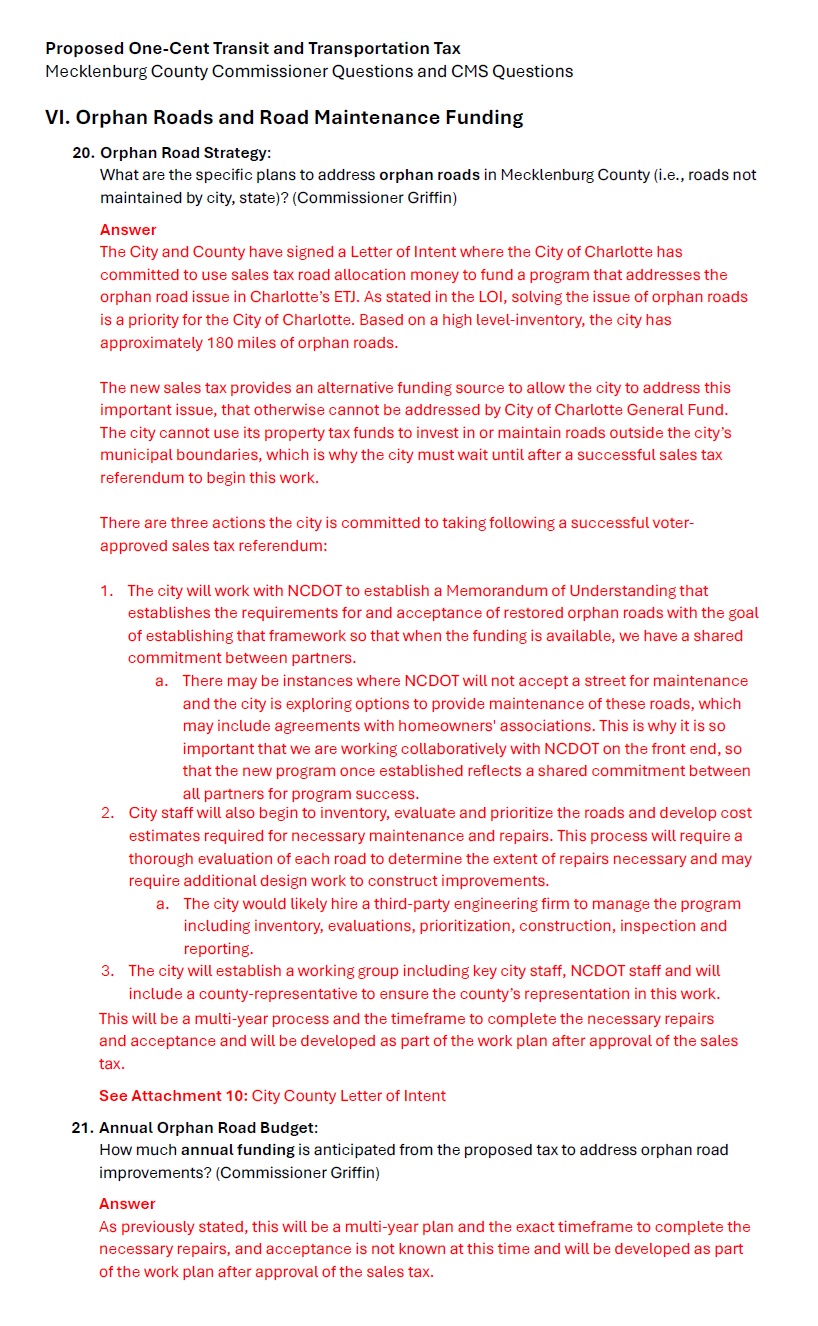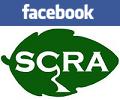|
Charlotte Commits to Address Orphan Roads with 1% Sales Tax
(August 29, 2025) Charlotte and Mecklenburg County signed a Letter of Intent on May 28, 2024 that commits Charlotte to dedicating a portion of its future sales tax revenue to fund a program that begins to address orphan roads within Charlotte's Extraterritorial Jurisdiction (ETJ).
What is the ETJ? Extraterritorial jurisdictions (ETJs) formerly were areas around municipalities that would at some time be annexed. In order to avoid problems associated with chaotic and disorganized development, municipalities were given the authority to regulate zoning and land use in their ETJs, initially covering areas within one mile of the municipal boundaries. (See UNC School of Government: Extraterritorial Jurisdiction for Planning and Development Regulation.) In 2011 Charlotte extended its ETJ to cover all unincorporated areas in Steele Creek and all other areas within its sphere of influence. Now, involuntary annexation doesn't happen, and residents in the ETJ are left in limbo. Charlotte provides some services (planning and zoning and police) but not others (street maintenance and garbage collection). Residents of the ETJ do not pay city property taxes, and residents cannot vote for city offices. How will the Proposed One-Cent Transit and Transportation Tax affect orphan roads? In a Letter of Intent dated May 28, 2024 and signed by the Charlotte City Manager and the Mecklenburg County Manager, the City of Charlotte has committed to dedicating a portion of Charlotte's future sales tax revenue for roads to fund a program that begins to address orphan roads within the Charlotte ETJ. The goal of this program will be to improve unaccepted roads such that the NCDOT can accept them for maintenance. The letter serves as a commitment between Charlotte and Mecklenburg County to enter in a more detailed agreement to address orphan roads in partnership with NCDOT. 
On July 18, the City of Charlotte provided responses to questions by Mecklenburg County Commissioners about the Proposed One-Cent Transit and Transportation Tax. Below are the responses to questions about orphan roads: 
See the complete Q & A here:
Proposed One-Cent Transit and Transportation Tax Q & A.
|




